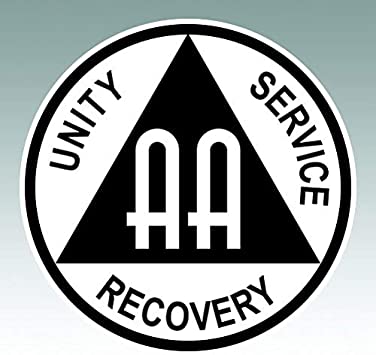By Carol P.
It took me a full year to become comfortable once again in the rooms of AA. I had been sober for over 20 years and because of a life event, I came back to AA. Not because I wanted to drink, but because life threw me a curve ball and I knew I could find hope again in AA. “Back to basics” I told myself.
When I first got sober in 1992 I was a ‘believer’, a Christian. I did not think of AA as religious. I remember saying AA is for everyone regardless of what religion one believes in. All should and would feel welcome here.
As time when on, my religion stopped making sense to me. I researched and sought out information, and much to my dismay at the time, I realized I could no longer believe. Religion just did not make sense anymore. Through books and later talking to others, I realized I was not alone. I was not angry at god. Nothing had happened to make me doubt god. I did not wake up one day and decide I no longer wanted to believe. It was a process. After the process, I found the courage to say it out loud. I am an atheist. Wow, that was scary. But it was the truth.
OK… let’s move on. I continued to live life. I was still me; I had not changed. I just no longer believed. In some ways it was easier to believe, to ‘Let go and Let God’. ‘There’s a reason for everything’, there is ‘nothing in god’s world that happens by mistake’. I believed all that. Now, I had lost my “go-to”. Try as I might, I can’t make myself believe.
So why am I telling you this? As I said, life happened, and I became broken. When I was finally able to pull myself from the darkness and ready to rejoin the living, I came back to the rooms of AA. After over 20 years of working my program and not drinking, I did not feel comfortable in the rooms. I felt like a fraud. I once again was having fears of not being accepted for who I am – a non-believer, even worse, an atheist.
Anxious to read Chapter Four with new eyes I was horrified that anyone thought this would be acceptable or encouraging to an agnostic or atheist. It’s condescending. AA’s most recent attempt, the pamphlet Many Paths to Spirituality is no better. Both assume we will all ‘come to believe’ eventually. A good friend with over 30 years of sobriety has a god of her understanding that’s not religious. I tried opening my mind and once again researched other paths in my quest to find a higher power, but it just was not happening. Then it hit me. Wait, I am happy without god. I am OK with that. I need to stop trying to fit my square self into that round hole. I am seriously OK with not believing and more than half of my sobriety has been achieved successfully without a higher power. It is OK to be me just the way I am. Phew!
[1]Newcomers and many others like me want to get sober but can’t quite stomach the god/higher power thing. It holds them back. They try, they leave, they are fired by their sponsors, they are patted on the back and told ‘keep coming back, you’ll get it’. If I, with over 20 years of sobriety, felt uncomfortable during that first year of my return, it is easy for me to imagine how a newcomer walking through the doors of an AA meeting for the first time might feel.
Is AA religious? Oh yes, it is. You can slice it any way you want but the proof is there. If you can, just for a moment, open your mind and take a good look, you may be able to see. The courts do, I do. Look around, go online, you will find many others who do as well. There are folks out there searching for a way to save their lives. It is not helpful to walk into a meeting and be bombarded with all the god talk. I was even told by someone with over 8 years of sobriety that maybe I should find somewhere else to go if I’m uncomfortable. This was not the caring AA I came to in 1992. Yet, this is still happening today. I hear it again and again. I used to be blind to this religiosity in AA. [2]Bill W. saw it years ago too and yet today, it is still an issue.
The straw that broke the camel’s back for me was the North Orange County (California) Central Office January 2017 newsletter. Without thinking of the newcomer, or how some folks might be affected, representatives of “spiritual but not religious” AA felt it ok to republish the following:
“Since this is the general consensus, it seems only right that at least the Serenity Prayer and the Lord’s Prayer be used in connection with our meetings. It does not seem necessary to defer to the feelings of our agnostic & atheist newcomers to the extent of completely hiding ‘our light under a bushel’. However, around her, the leader of the meeting usually asks those to join him in the Lord’s Prayer who feel they would care to do so. The worst that happens to the objectors is that they have to listen to it. This is doubtless a salutary exercise in tolerance at their stage of progress.”
I was taught that the newcomer is the most important person in the room. I can assure you, listening to the Lord’s Prayer does not do much for someone desperately trying to find recovery.
AA has been around for a long time; it saved my life and for that I am grateful. There are thousands of non-believers like me in the rooms of AA. Take a moment to research the history of AA and you will find there is a lot information about AA that is not in the Big Book of Alcoholics Anonymous. [3]People are dying because it is said over and over “you must believe in a higher power or you will not stay sober”. It is simply not true. You CAN stay sober without a higher power.
The responsibility pledge read at some Traditional and Secular AA meetings states: I am Responsible. When anyone, anywhere, reaches out for help, I want the hand of A.A. always to be there and for that, I am responsible.
- Sobershedevils.com
- https://secularrecoverygroup.org/
Carol P
Written 2017
[1] 1965 General Service Conference: address to the delegates:
Our very first concern should be with those sufferers that we are still unable to reach… Newcomers are approaching us at the rate of tens of thousands yearly. They represent almost every belief and attitude imaginable. We have atheists and agnostics. We have people of nearly every race, culture and religion… How much and how often did we fail them? Hence let us not pressure anyone with individual or even collective views… Let us always strive to be inclusive rather than exclusive. Let us remember that each alcoholic among us is a member of AA, so long as he or she so declares.
Simply because we have convictions that work very well for us, it becomes quite easy to assume that we have all of the truth. Whenever this brand of arrogance develops we are sure to become aggressive. We demand agreement with us. We play God. This isn’t good dogma. This is very bad dogma. It could be especially destructive for us of AA to indulge in this sort of thing.
[2] Bill Wilson, Grapevine Article, “The Dilemma of No Faith”, 1961
In AA’s first years I all but ruined the whole undertaking… God as I understood Him had to be for everybody. Sometimes my aggression was subtle and sometimes it was crude. But either way it was damaging – perhaps fatally so – to numbers of non-believers.
[3] Bill Wilson wrote in the Grapevine in 1946,”Whenever, wherever, one alcoholic meets another alcoholic and sees in that person first and foremost not that he or she is male or female, or black or white, or Christian, Buddhist, Jew, or Atheist, or gay or straight, or whatever, but sees… that he or she is alcoholic and that therefore both of them need each other – there will be not only an Alcoholics Anonymous, but there will be the Alcoholics Anonymous that you and I love so much and respect so deeply.”
This is from A.A. Conference Approved literature: “The majority of A.A. members believe that we have found the solution to our drinking problem not through individual willpower, but through a power greater than ourselves. However, everyone defines this power as he or she wishes. Many people call it God, others think it is the A.A. group, still others don’t believe in it at all. There is room in A.A. for people of all shades of belief and non-belief.”

